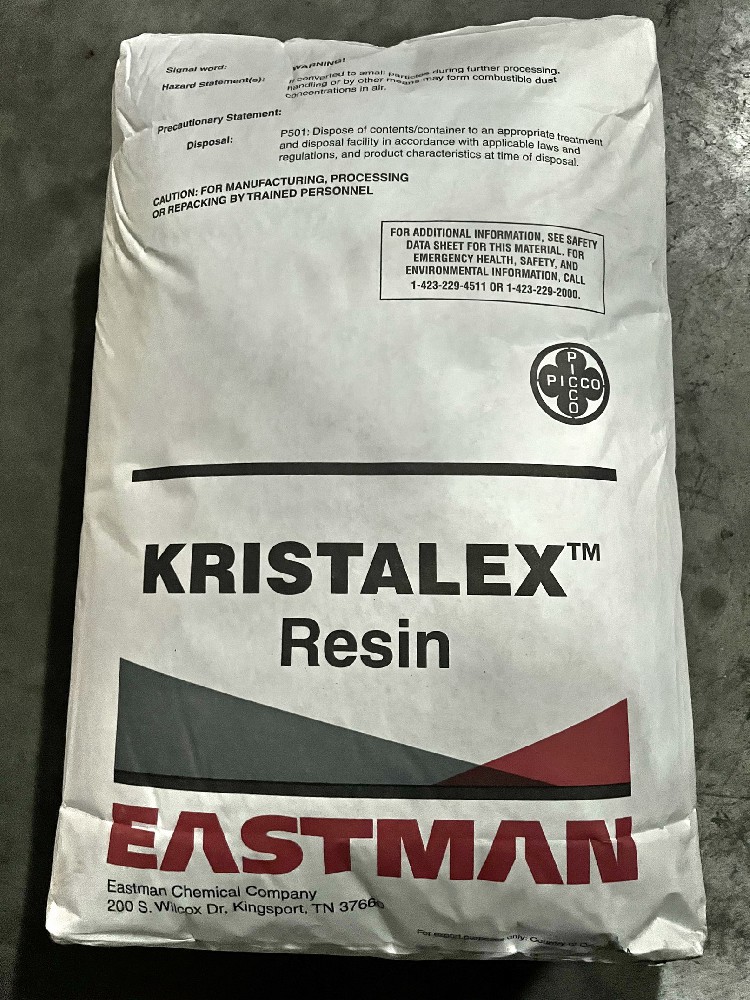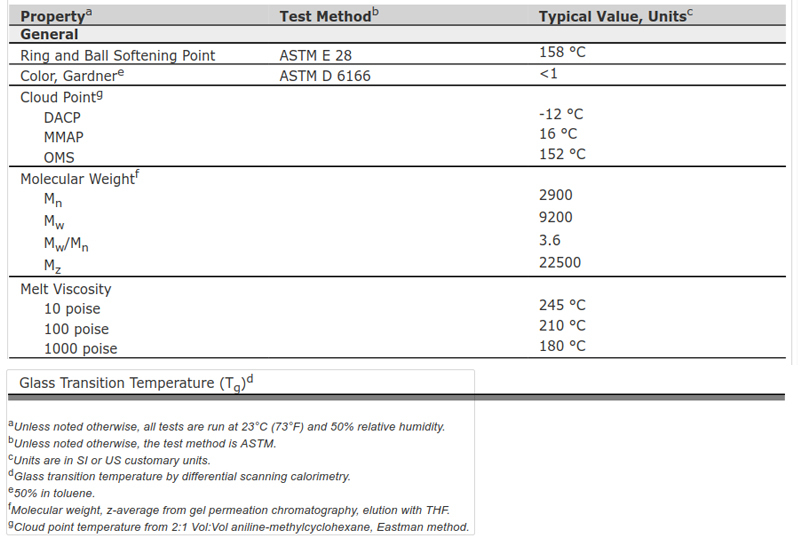
Endex 160
- Technical Data Sheet Endex? 160 Hydrocarbon ResinApplicationsAdhe···
Technical Data Sheet Endex? 160 Hydrocarbon Resin
Applications
Adhesives/sealants-b&c
Bookbinding
Carpet construction
Case & carton sealing closings
Casting wax
Commerical printing inks
Concrete
Film modification
Hygiene adhesives
Labels non food contact
Marine
Packaging components non food contact Packaging tape
Polymer modification
Protective coatings
Roofing
Solvent borne packaging adhesives Specialty tape
Tape non food contact
Tires
Key Attributes
Heat stability
Highest softening point available Pure aromatic monomer composition Water-white initial color
Product Description
A water-white thermoplastic resin made from purified aromatic hydrocarbon monomers. Used to modify the melt flow and increase the temperature resistance of styrenic plastic and rubber. Reinforces the styrene end blocks of styrenic block copolymers. In adhesives Endex? 160 hydrocarbon resin will associate with the styrenic endblocks, producing higher cohesion at temperatures up to 70°C without affecting tack and adhesion properties. Endex?
160 hydrocarbon resin has the highest softening point among all hydrocarbon resins available from Eastman Chemical Company.
Typical Properties

Compatibility and Solubility
Compatible with polystyrene or styrene-containing polymers. Incompatible with polyolefins, natural rubber, butyl rubber, EPDM, and EVA. Soluble in aliphatic, aromatic, and chlorinated hydrocarbons; esters; and ketones. Insoluble in alcohols and glycols; limited solubility in nitroparaffins. For low or zero VOC systems Endex? 160 is soluble in the VOC exempt solvents t-butyl acetate (TBA) and perchlorobenzenetetrafluoride (PCBTF) and will tolerate some acetone and/or methyl acetate as a diluent in solvent systems based on TBA and/or PCBTF. VOC exemptions and environmental regulations vary regionally and compliance with local standards should be verified before any claims about VOC content are made.
Packaging
Pastilles, in multiwall paper bags (50 lbs, 22. 7 kg net wt).
Storage
Due to the thermoplastic behavior, pastillated and flaked resins may fuse, block or lump. This can be accelerated under any of the following conditions: 1) above ambient temperature, 2) prolonged storage, 3) pressure, e.g., stacking pallets, or a combination of these conditions. This is particularly applicable for low softening point resin grades.
In order to maintain the flake or pastille shape, we therefore recommend storing the material in a temperature-controlled area, be careful with stacking material or applying pressure and preventing prolonged storage.
It should be noted that lumping does not have a negative impact on the product specifications. Due to the nature of the product, claims regarding lumping cannot be accepted.
Resins are prone to gradual oxidation, some more so than others. This could result in darkening and/or it could have an adverse effect on the solubility of the resin in organic solvents or on its compatibility with polymers. Accordingly, it is recommended that strict control of inventory be observed at all times, taking care that the oldest material is used first.



 精細化學(xué)品
精細化學(xué)品



